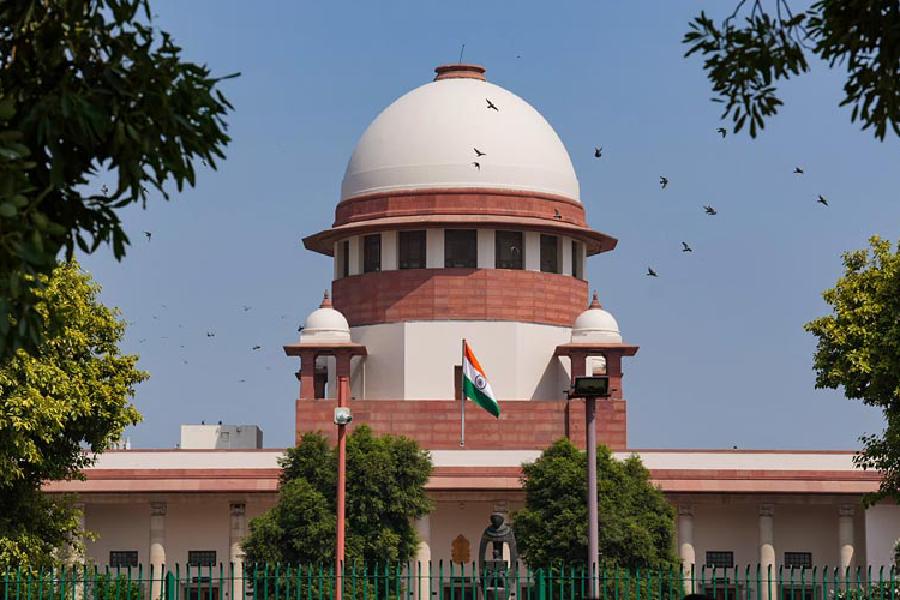The Supreme Court on Monday issued guidelines to be followed by states and Union Territories while taking accused persons and criminals in preventive detention.
The court slammed Telangana police for passing an order detaining an alleged anti-social element in jail for 12 months based on his earlier crime records, saying it was a violation of the citizen’s fundamental right to liberty and observing: “The sooner this trend is put to an end, the better.” The court allowed his immediate release.
A bench of Justices Surya Kant and Dipankar Datta allowed an appeal filed by Ameena Begum challenging the detention order passed against her husband by the Hyderabad police commissioner for alleged hooliganism. The judgment was formally uploaded on Tuesday.
Under preventive detention laws like NSA, COFEPOSA and various state laws, a person can be detained in prison for over 12 months without trial on the mere subjective satisfaction of the detaining authority, who in most cases are the local police commissioners or senior ranking officers.
“A pernicious trend prevalent in the state of Telangana has not escaped our attention. While the Nation celebrates Azadi Ka Amrit Mahotsav to commemorate 75 years of independence from foreign rule, some police officers of the said state who are enjoined with the duty to prevent crimes and are equally responsible for protecting the rights of citizens as well, seem to be oblivious of the Fundamental Rights guaranteed by the Constitution and are curbing the liberty and freedom of the people. The sooner this trend is put to an end, the better,” Justice Datta, who authored the judgment, said.
The Supreme Court laid down the following guidelines to be followed by the high courts in all matters relating to the detention of accused persons under the various preventive detention laws, saying: “In the circumstances of a given case, a Constitutional Court when called upon to test the legality of orders of preventive detention would be entitled to examine whether:
(i) The order is based on the requisite satisfaction, albeit subjective, of the detaining authority, for, the absence of such satisfaction as to the existence of a matter of fact or law, upon which validity of the exercise of the power is predicated, would be the sine qua non (an essential condition) for the exercise of the power not being satisfied
(ii) In reaching such requisite satisfaction, the detaining authority has applied its mind to all relevant circumstances and the same is not based on material extraneous to the scope and purpose of the statute
(iii) Power has been exercised for achieving the purpose for which it has been conferred, or exercised for an improper purpose, not authorised by the statute, and is therefore ultra vires
(iv) The detaining authority has acted independently or under the dictation of another body
(v) The detaining authority, by reason of self-created rules of policy or in any other manner not authorised by the governing statute, has disabled itself from applying its mind to the facts of each individual case
(vi) The satisfaction of the detaining authority rests on materials which are of rationally probative value, and the detaining authority has given due regard to the matters as per the statutory mandate
(vii) The satisfaction has been arrived at bearing in mind the existence of a live and proximate link between the past conduct of a person and the imperative need to detain him or is based on material which is stale
(viii) The ground(s) for reaching the requisite satisfaction is/ are such which an individual, with some degree of rationality and prudence, would consider as connected with the fact and relevant to the subject matter of the inquiry in respect whereof the satisfaction is to be reached
(ix) The grounds on which the order of preventive detention rests are not vague but are precise, pertinent and relevant which, with sufficient clarity, inform the detenu the satisfaction for the detention, giving him the opportunity to make a suitable representation
(x) The timelines, as provided under the law, have been strictly adhered to.











